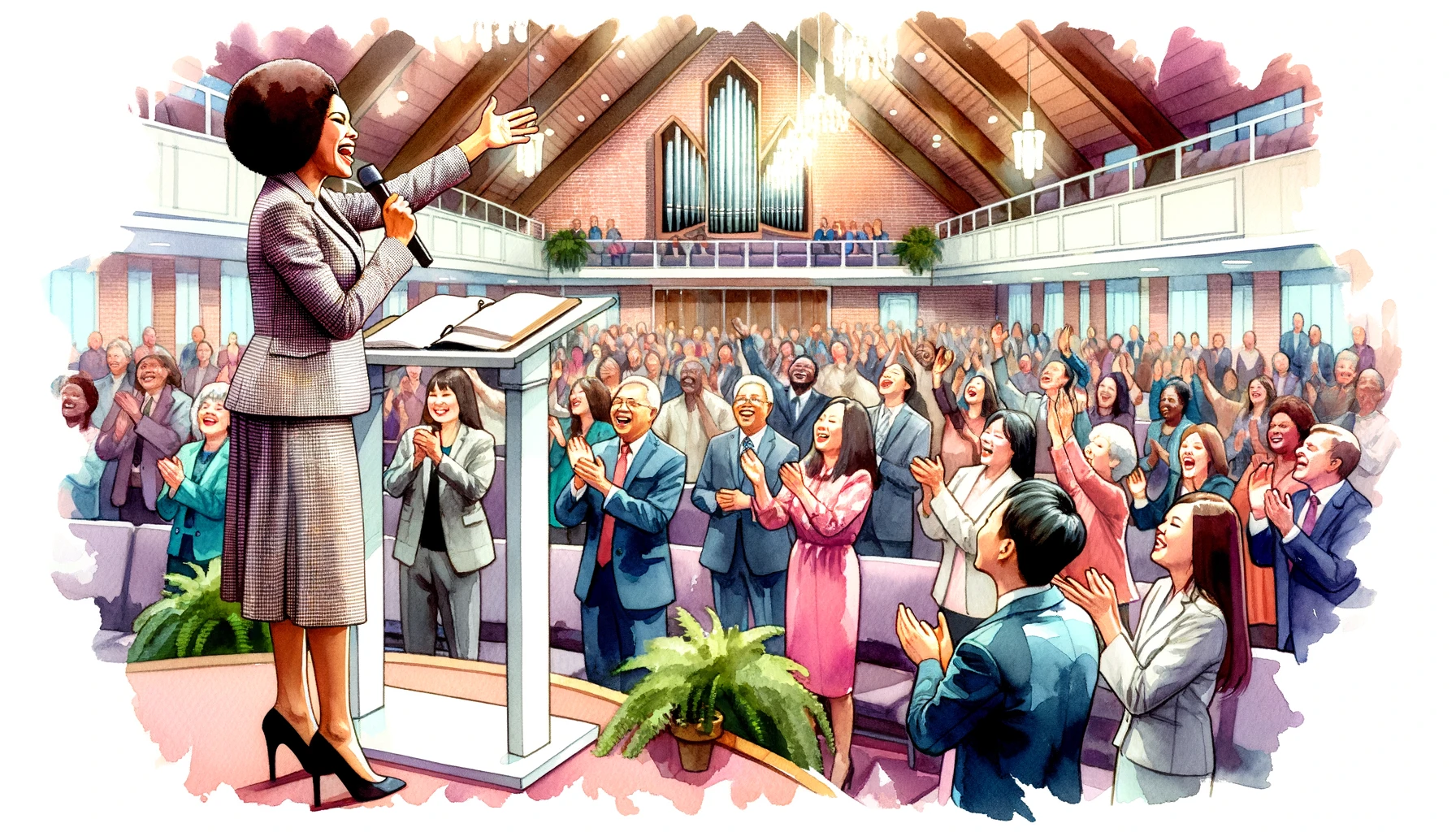The Bible provides guidance on a wide array of issues, including church leadership and gender roles. As such, it’s crucial that we approach this sensitive topic with humility, respect, and a deep commitment to understanding God’s word. Our exploration will draw upon both Old and New Testament scriptures to provide a balanced and comprehensive examination of the question at hand.
Understanding the Biblical Context
When discussing women pastors, we need to grasp the cultural context in which the Bible was written. This isn’t about justifying or discounting any parts of the scripture, rather it gives us the necessary framework to accurately interpret the meaning behind the words.
In ancient times, society was predominantly patriarchal, including the Jewish society of the Old Testament and the Greco-Roman society of the New Testament. In such societies, men held primary authority in most, if not all, facets of life. The male-dominant culture likely influenced the structure and function of the early church, which was embedded within these societies. This context should be taken into account when interpreting biblical passages that seem to limit women’s roles in the church.
Throughout the Old Testament, leadership roles were primarily occupied by men. From patriarchs like Abraham, Isaac, and Jacob to prophets like Moses and Samuel, men were the central figures. Nonetheless, we also find instances where women played pivotal roles. Deborah, for instance, served as a prophet and a judge, leading Israel in a time of need (Judges 4-5). She was a woman in a position of religious and political authority.
In the New Testament, Jesus broke societal norms by openly conversing with women, including the Samaritan woman at the well (John 4), and incorporating women into His ministry. Women like Mary Magdalene, Joanna, Susanna, and many others are mentioned as followers of Jesus, some even financially supporting His ministry (Luke 8:1-3). After Jesus’ resurrection, it was Mary Magdalene and the other women who first witnessed and reported the empty tomb (Matthew 28, Mark 16, Luke 24, John 20).
The apostle Paul, known for writing some contentious verses on women’s roles, worked alongside women in his ministry. Women like Phoebe, who was a deacon (Romans 16:1), and Priscilla, who taught the eloquent preacher Apollos (Acts 18:26), are noted.
The patriarchal society of biblical times may have influenced the early church’s structure. However, throughout the Bible, we see women in significant roles, from Deborah in the Old Testament to numerous women in the New Testament. Even Paul, who penned some disputed verses about women, worked closely with women in his ministry. Thus, a nuanced view of women’s roles in the Bible suggests a wider involvement in religious life than may initially appear.
Key Bible Passages About Women and Church Leadership
Several scriptures in the New Testament directly address women’s roles in the church, with some appearing to restrict these roles. A few of the most referenced are from the apostle Paul’s letters to the Corinthians and Timothy.
In his first letter to the Corinthians (1 Corinthians 14:34-35), Paul writes about order in church meetings, saying that women should remain silent. According to Paul, it’s disgraceful for a woman to speak in the church. Instead, if they have questions, they should ask their husbands at home. This text is one of the primary verses that has been used to suggest that women shouldn’t serve as pastors.
In his first letter to Timothy (1 Timothy 2:11-14), Paul gives directions about worship. He says that a woman should learn quietly and submissively, not teaching or holding authority over men. Paul ties his reasoning back to the creation order and the Fall, noting that Adam was created first, then Eve, and that Eve was deceived.
On the other hand, we can find other passages showing women serving in important roles within the early church. Junia, for example, is referred to as “outstanding among the apostles” (Romans 16:7). Priscilla is mentioned as a teacher of Apollos, a learned man with a thorough knowledge of the scriptures (Acts 18:26).
Galatians 3:28, also written by Paul, declares that in Christ there is no Jew or Gentile, slave or free, male or female – all are one. This passage suggests a spiritual equality among believers, regardless of gender. The question arises then if this spiritual equality also translates into an equality of roles within the church.
Some of the key Bible passages discussing women’s roles in the church appear to restrict women from teaching or holding authority in the church. However, other scriptures highlight women in significant roles, including teaching, and a verse in Galatians emphasizes the spiritual equality of all believers in Christ. These varying passages necessitate a thorough consideration of their context and application for understanding the biblical perspective on women pastors.
Synthesis of Biblical Perspectives
Having explored the cultural context of the Bible and key passages that talk about women in church leadership, it’s clear that there’s not a single, universally agreed-upon interpretation of these scriptures. The different viewpoints are primarily rooted in the interpretation of the Bible as either a culturally situated text or a timeless doctrine.
Those who perceive the Bible’s teachings as specific to their historical context argue that certain instructions, like women remaining silent in churches (1 Corinthians 14:34-35) and not assuming authority over men (1 Timothy 2:11-14), were pertinent to the first-century church. They maintain that such directives reflected the societal norms of the time but may not be applicable to our current cultural context. This view often leads to the affirmation of women pastors.
Others regard the Bible as a timeless doctrine with instructions that remain relevant for all generations. In their perspective, passages like the ones mentioned above are seen as divinely ordained roles for men and women within the church. Such interpretation leads to the conclusion that only men should hold pastoral roles.
It’s also important to consider how the interpretation of these passages aligns with the broader themes of the Bible. For instance, the Bible emphasizes the spiritual equality of all believers in Christ (Galatians 3:28). Does this spiritual equality extend to church leadership roles? Some suggest it does, while others believe that equality of worth does not necessarily mean sameness in function.
The synthesis of biblical perspectives on women serving as pastors reveals two main lines of thought. Some interpret the Bible as a culturally specific text, suggesting that instructions limiting women’s roles were relevant to their original historical context but may not apply today. Others view the Bible as a timeless doctrine, implying that the roles defined for men and women in the church should remain constant. This topic also raises questions about the intersection of spiritual equality and roles within the church. The varied interpretations underline the complexity of this issue and the importance of prayerful, thoughtful study of God’s word.
Walking in Faithful Discernment
The Bible is our compass, guiding us through our faith journey. However, interpreting it isn’t always straightforward. Questions about women serving as pastors have been a subject of earnest prayer and debate among Christians worldwide. What we can agree on is our commitment to respect, humility, and prayerful interpretation of the Scriptures. Our objective is to align ourselves with God’s will, as it is revealed in His word.
- Do the instances of women serving in leadership roles in the Bible influence your interpretation of the passages that seem to restrict these roles?
- How do you understand the concept of spiritual equality in Galatians 3:28 in relation to roles within the church?
- How can we seek to understand and apply the teachings of the Bible faithfully in the context of our contemporary society?
With God’s grace, we continue to seek His truth in all things, trusting in His wisdom over our limited understanding. Let’s remember, we’re called to be unified in Christ, even as we grapple with diverse interpretations and implications of God’s word. Let’s stay focused on our shared faith, maintaining the spirit of love and unity as we strive to understand God’s divine intention and live according to His holy teachings.














